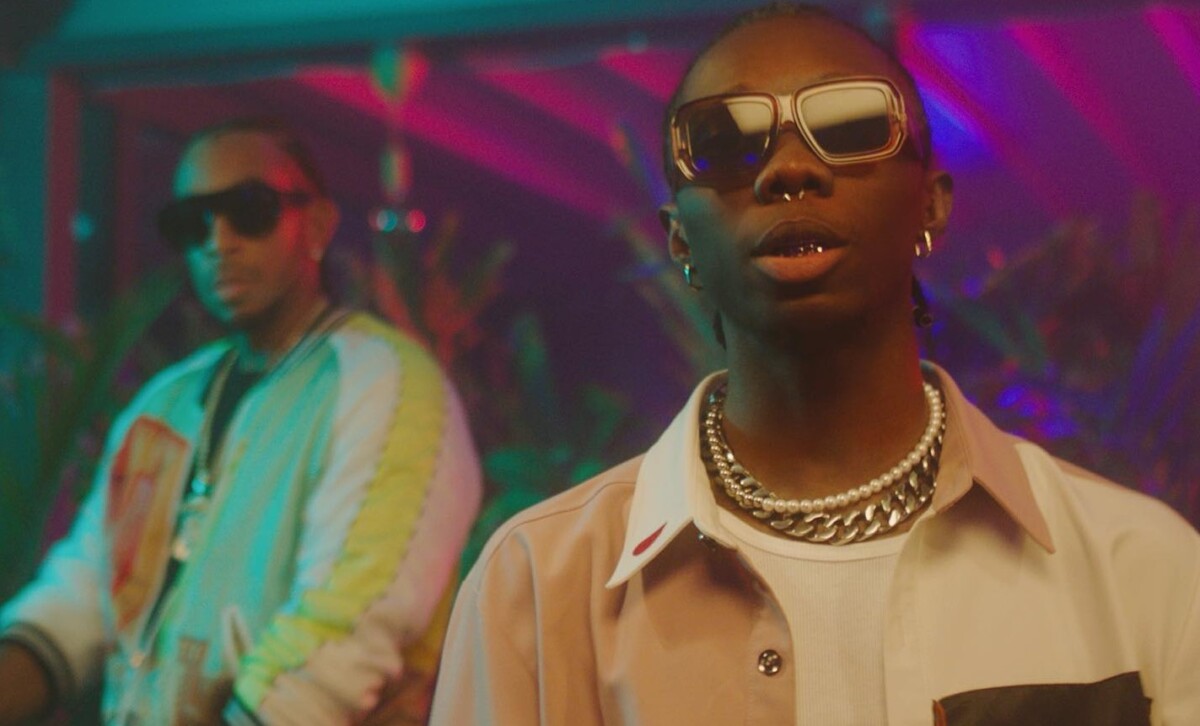In a remarkable move that further solidifies the globalization of hip hop, American rap icon Ludacris has joined forces with Nigeria’s rising international hip hop sensation Blaqbonez alias Emeka The Stallion for a captivating collaboration.
This unexpected partnership not only showcases Ludacris’ support for the African hip hop scene but also highlights the growing influence of African artistes in the global music industry.
Their collaborative track, aptly titled ‘Cinderella Girl (Where You Dey)’ is set to make waves and cement their mark in the ever-evolving hip hop landscape.
Watch the official music video for ‘Cinderella Girl (Where You Dey)’ as written and performed by Blaqbonez and Ludacris right below;
Blaqbonez: One of the most hardworking, talented, gifted African rapper today!
View this post on Instagram
Nigerian rapper Blaqbonez, known offstage as Emeka Akumefule, has been making a name for himself with his unique style and lyrical prowess.
Garnering attention through a series of successful projects and collaborations with prominent Nigerian artistes, Blaqbonez has emerged as a formidable talent within the African hip hop scene.
His clever wordplay and captivating delivery have earned him a dedicated fan base and garnered recognition both locally and internationally.
Ludacris: An Iconic Figure in Hip Hop
View this post on Instagram
Christopher Brian Bridges, better known as Ludacris, has left an indelible mark on the hip hop landscape as a rapper, actor, and entrepreneur.
With a career spanning over two decades, Ludacris has achieved remarkable success, earning numerous awards and accolades along the way.
His distinctive voice, charismatic presence, and ability to seamlessly blend catchy hooks with clever wordplay have solidified his position as one of hip hop’s most iconic figures.
The Globalization of Hip Hop
Hip hop has transcended its origins in the Bronx, New York, and has become a universal language that resonates with people from diverse backgrounds worldwide.
The globalization of hip hop has led to collaborations between artists from different countries and cultures, resulting in a vibrant and ever-evolving genre.
This fusion of styles has pushed the boundaries of hip hop and expanded its influence across the globe.
Ludacris Embraces African Hip Hop
View this post on Instagram
Through his collaboration with Blaqbonez, Ludacris demonstrates his recognition of the immense talent and influence emanating from the African hip hop scene.
The partnership serves as a testament to Ludacris’ willingness to explore new sounds and embrace musical horizons beyond his American roots.
Not only does this collaboration expose Blaqbonez to a broader audience, but it also highlights the global appeal of African music.
The Impact of ‘Cinderella Girl (Where You Dey)’ on the African Hip Hop Scene
The release of ‘Cinderella Girl {Where You Dey}’ carries profound implications for the African hip hop scene.
The collaboration between Ludacris and Blaqbonez not only amplifies the recognition and acceptance of African artists in the global music industry but also paves the way for further collaborations and cultural exchange.
This union serves as a platform for African artists to showcase their talents on an international stage, solidifying their position within the global hip hop landscape.
Moreover, ‘Cinderella Girl {Where You Dey}’ provides aspiring African artistes with inspiration and motivation to pursue their dreams.
It emphasizes that talent knows no boundaries and success can be achieved regardless of geographical limitations.
As African hip hop continues to gain traction worldwide, collaborations like these reinforce its status as a powerful and influential force within the music industry.
Our Take
View this post on Instagram
Ludacris’ collaboration with Blaqbonez on the track ‘Cinderella Girl {Where You Dey}’ not only cements the growing global influence of African hip hop but also showcases the power of music to unite diverse cultures.
By embracing African talent, Ludacris expands his musical horizons while contributing to the elevation of African artists on the international stage.
This collaboration exemplifies the ongoing globalization of hip hop and solidifies




